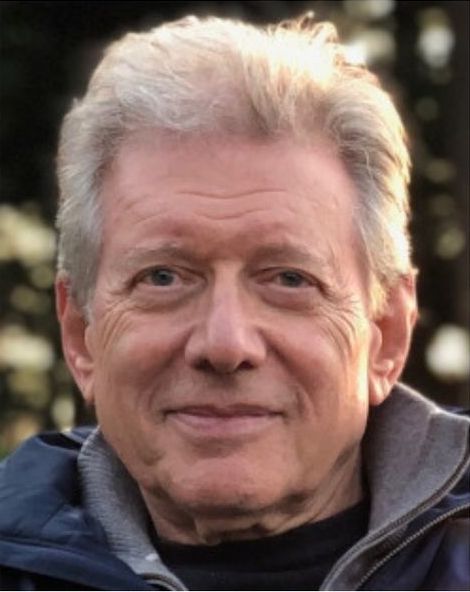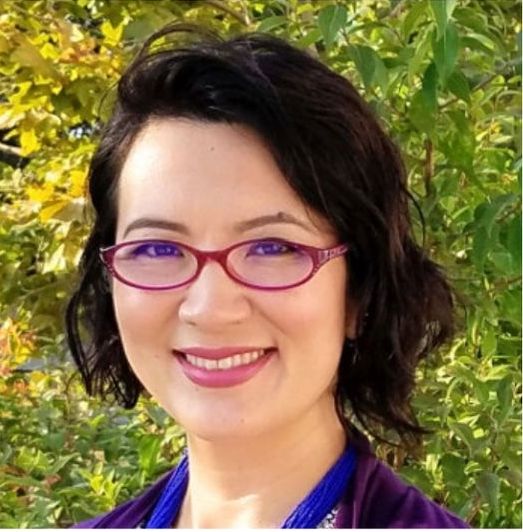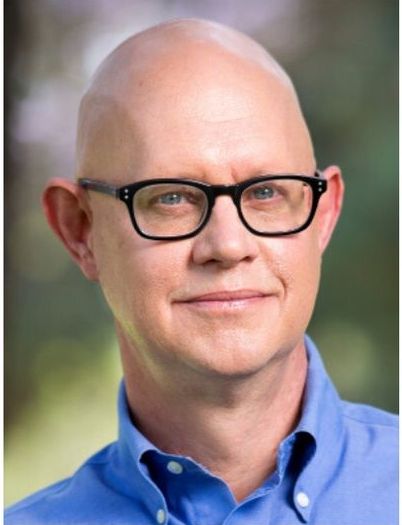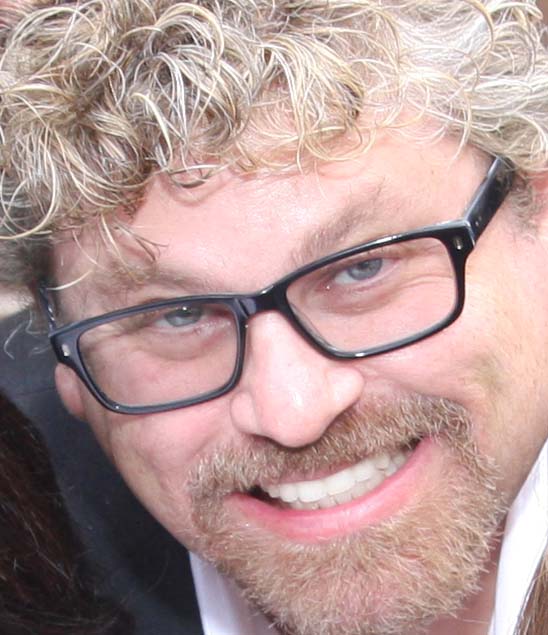|
ONLINE CE FROM LACPAAll of our online CEs are recorded in a user-friendly format that allows you to see both the video and the slides simultaneously. You do need to watch the video, take the test, and complete the evaluation all in one sitting. Enjoy the convenience of online learning without complications, as we have simplified and refined the technology to make it easy to learn from home. Anyone can do it—and so can you. And of course, LACPA members always receive a discounted price. Increase your learning and get high-quality CEs at your home or office. You will be glad you did.
The following recorded LACPA CE Series Programs are offered
To have an enjoyable experience please be sure to reserve enough time to view the presentation, take the post-test,
In case of any questions or technical difficulties please reach out to the Beaconlive Support Team directly
Cognitive Behavioral and Mindfulness Approaches in the Treatment of Chronic InsomniaAdvanced LevelPresenter: Jeffrey Young, Ph.D., CBSM, DBSM
Treating chronic insomnia using cognitive behavioral techniques (CBT-I) and Mindfulness has had a longstanding history of effectiveness and safety. Beyond this, there is now an increased call for this approach to be implemented ahead of hypnotic medication. Clinicians attending will understand the basics of CBT-I and Mindfulness Techniques for Sleep, along with some of the finer points of practice which will be demonstrated through case examples. Elements of Sleep Physiology and Indications for Sleep Studies will be addressed.
Jeffrey Young PH.D., CBSM, DBSM is a psychologist in private practice in Encino, California. He specializes in the assessment and treatment of sleep disorders. Dr. Young is certified in Behavioral Sleep Medicine by the American Academy of Sleep Medicine, a Diplomate of the American Board of Behavioral Sleep Medicine, and Assistant Clinical Professor in the UCLA Department of Psychiatry. His most recent publication (with Avidan & Carlson) is Frightening Spells at Night, a case report published in the Journal of Clinical Sleep Medicine (2016).
This workshop is a good fit for clinicians wanting to initially learn about treating chronic insomnia as well as a good fit for more experienced clinicians wanting to refine their skills. The workshop will focus on both cognitive-behavioral and mindfulness techniques. We will begin with an introduction to sleep physiology which will serve as the foundation and rationale for the techniques reviewed. We will then move to the diagnosis and assessment of chronic insomnia and review the common assessment instruments used for sleep in clinical practice.
After this foundation is set out, we will then explore in detail the various cognitive-behavioral and mindfulness approaches to treatment, highlighting their application and underlying rationale. We will also discuss contraindications and modifications of techniques to accommodate special populations. There will be much time devoted to question and answer and participants are encouraged to submit questions or cases ahead of the talk so that they may be integrated as part of the program.
COURSE GOALS AND EDUCATIONAL OBJECTIVES The attendees will be able to: 1. Define chronic insomnia per DSM and ICSD criteria 2. List some of the stages and functions of sleep 3. Explain when a sleep study may be indicated 4. Assess chronic insomnia and utilize common sleep assessment instruments. 5. Discuss CBT and Mindfulness Techniques 6. Name various Mindfulness and Relaxations exercises 7. Explain the rationale for various CBT-I Contraindications 8. Explain the rationale for various CBT-I Modifications 9. Explain the role of Medications in Insomnia 10. Prepare a case conceptualization in CBT-I
COURSE OUTLINE Opening Introduction by LACPA Representative Overview of Talk A brief explanation of Sleep Function, Staging, and Sleep Studies Models of Insomnia Assessment of Insomnia, Use of Common Sleep Assessment Instruments Treatment Elements: Behavioral and Cognitive Techniques, Mindfulness/Relaxation Case Examples and Q & A Click on the link below to sign up.
Freud, Kohut, and Kernberg Intermediate Level
Starting with Freud’s theory of psychological creation, his conception of how the internal world of self and object representations initially come into being. This involves his seminal constructs of primary and secondary narcissism, ego libido and object libido, anaclitic love and narcissistic love, and how his psychosexual theory of infantile development might lead to healthy or regressive narcissism. Then explore Kohut’s “self psychology,” its emphasis upon psychological deficit and developmental arrest, the grandiose, alterego and idealizing selves and their associated self-object functions that are considered necessary for the development of a cohesive, integrated self-structure. Lastly, investigate Kernberg’s “pathological grandiose self,” how this aberrant mental structure is caused by severely frustrating external and internal object relations at the beginning of life.  Peter Wolson, Ph.D. is a training and supervising analyst and faculty member of the Los Angeles Institute and Society for Psychoanalytic Studies. He has served as LAISPS’ President and Director of Training, is a co-founding member of the Confederation of Independent Psychoanalytic Societies, is a Fellow of the International Psychoanalytical Association and is a past-President of the Los Angeles Society of Clinical Psychologists. He is on the resident faculty of the Wright Institute Los Angeles and is in private practice in Beverly Hills.
COURSE GOALS AND EDUCATIONAL OBJECTIVES
The attendees will be able to:
1. Define and differentiate primary narcissism from secondary narcissism
2. Describe Freud’s conception of how self and object representations develop. 3. Recognize clinical indications of Kohut’s grandiose and idealizing selves 4. Identify and treat selfobject transference ruptures 5. Diagnose a pathological grandiose self 6. Interpret the defenses of a pathological grandiose self COURSE OUTLINE
1. Introduction
2. Freudian Theory 3. Freud’s evolving theory of narcissism 4. Kohut’s “self psychology” 5. Otto Kernberg’s “Pathological Grandiose Self (PGS)” Click on the link below to sign up.
Record Keeping & Documentation: Best Practices to Keep You Safe,
in Compliance, and With Peace of Mind Advanced Level
Presenter: Maelisa Hall, Psy.D.
This workshop may be counted toward the ethics requirement mandated
every two years for license renewal. Case notes are commonly written in private and hidden away, making the experience confusing and anxiety-provoking for even seasoned psychologists. Due to the necessary limits to confidentiality, psychologists rarely read one another’s notes as a matter of practice. Instead, notes tend to be available only at the request of the client or during situations commonly viewed as negative, such as during a board investigation or court proceedings. This advanced workshop will provide direction based on ethical principles, as well as a supportive format for discussing and practicing note writing in real-time among colleagues. Most mental health professionals find the exercise of writing notes together to be cathartic and affirming, as well as informative. Attendees will be encouraged to evaluate their client population and modality when considering what best applies to their practice, and to share with one another throughout the workshop so as to establish a standard of care based upon ethical and legal principles.  Maelisa Hall, Psy.D., is a psychologist, entrepreneur and co-host of the My Biz Bestie podcast. Through her online continuing education business, QA Prep, she specializes in teaching therapists how to connect with their paperwork so it’s more simple and more meaningful. Dr. Hall enjoys creating trainings that are interactive and engaging. Her love of online marketing and collaboration mean that she is always networking and sharing resources within the mental health community, even while living on a sailboat in Southern California. Course Goals and Educational Objectives: 1- Create an individualized case note template that applies to psychotherapy practice. 2- Describe the common similarities in note writing among various practitioners. 3- Evaluate which laws and ethical principles to use in supporting individualized documentation practices. 4- Assess the acceptable level of risk related to technology in documentation. Click on the link below to sign up.
Bi+ Affirmative Psychotherapy: Unique Psychosocial Issues for
Bisexual, Pansexual, and Sexually Fluid Women
Advanced Level
Presenter: Mimi Hoang, Ph.D.
More and more people are comfortable coming out as bisexual, pansexual, fluid, and non-monosexual (or “bi+”) in recent history, and findings show that more women identify as bi+ than men, but this may mask the complex psychosocial challenges facing bi+ women, such as internalized biphobia, mood, and anxiety disorders, sexual assault, and suicidality. In this workshop, you will learn more about these important mental health and cultural issues and gain tools to become a more LGBT affirming and culturally competent clinician.  Mimi Hoang, Ph.D., is a nationally recognized psychologist, author, and advocate for the LGBTQ and Asian American communities. Her LGBTQ leadership since the 1990s includes co-founding three bi+ organizations, multiple publications, invitations to the White House, and being named “One of the Most Significant Women in the Bisexual Movement.” Currently, Dr. Hoang works as a Staff Psychologist at Loyola Marymount University and Adjunct Faculty at Antioch University. www.drmimihoang.com. This workshop will provide an in-depth look at the complex psychological issues specifically facing bisexual, pansexual, fluid, and non-monosexual identified (“bi+”) women. Both the stage models and Dr. Mimi’s “congruence model” for bi+ identity development will be discussed, as well as how bi+ women navigate same-gender and other-gender sexual and romantic attractions, relationships, and managing identity labels throughout their life span. Bi+ women also encounter different forms of minority stresses and microaggressions via biphobia, homophobia, “heterophobia,” and bi-erasure depending on their social communities and affiliations. This course will delve into the nuances of sexual and romantic intimacy with a heterosexual male, lesbian female, and bi+ and transgender partners for bi+ women. Clinical Issues of internalized biphobia, mood disorders, substance abuse, eating disorders, sexual assault, and suicidality will also be covered, all through the lens of ecosystemic intersectional feminist and LGBT-affirming psychotherapy models. Attendees will gain theoretical, research, clinical, and community knowledge through lecture, videos, interactive discussions, and resource sharing, and will be able to implement their knowledge to in-class case vignettes. Attendees will be able to: 1) Describe dimensions of same-gender and other-gender sexual and romantic attractions, coming out stages, and Hoang’s congruence identity development model for bi+ women. 2) Analyze the nuances of bi+ women’s sexual and romantic intimacy with heterosexual men, lesbian women, and bi+ and transgender partners. 3) Deconstruct issues of power and privilege, discuss examples of biphobia, homophobia, “heterophobia,” and bi-erasure for bi+ women using an ecosystemic intersectional feminist and LGBT-affirming psychotherapy models. 4) Discuss specific health disparities impacting bi+ women, and demonstrate concrete bi+ affirmative interventions and list bi+ resources to be applied to case vignettes. Course Outline: I. Introduction
II. Basic Terms & Definitions
III. Bi Identity Development
IV. Psychosocial Issues for Bi+ Women
V. Biphobia and Bi Erasure
VI. Bi Wellness
VII. Movie
VIII. Becoming a Bi-Affirmative Clinician
IX. Case Vignettes
Please click on the link below to sign up.
An Evidence-Based Approach to Cannabis: Cannabis Science in the 21st Century
Introductory Level
Presenter: Michael Backes
Changes in legislation are dramatically changing the perception, availability, and utilization of cannabis. Currently, 1 in 8 adults and 1 in 5 adults under 30 are consuming medical and recreational cannabis. These changes affect your clients and your work with them and highlight the need for clear, clinical information based on the latest findings and evidence-based research. Mr. Backes covers fMRI studies of cannabis’ effect on the brain, as well as the critical role of cannabis chemistry in understanding and reducing adverse effects, dependency and withdrawal. He will provide a survey of the endocannabinoid system and its role in emotion, memory and cognition, and how the various compounds in cannabis (THC, CBD, terpenes) act on neural networks and the body. He will cover medical and psychiatric indications and contraindications for use.
Learn how to work with patients in a way that is supportive, grounded, and reduces harm. About appropriate dosing, routes of administration, and extractions such as edibles, wax, and shatter. Medical recommendations, procurement and quality of medicine, and guidance for skillful use will is discussed. Included is an overview of key terms such as indica, sativa, and CBD. Also covers the discovered cannabis related illness: Cannabinoid Hyperemesis Syndrome.
 Michael Backes, a world-renowned expert in the cannabis science and author of Cannabis Pharmacy: The Practical Guide to Medical Marijuana, will outline the state of the science in a sophisticated, nuanced way that is sadly lacking in the typical discourse. He will deepen your understanding of how cannabis interacts with the mind and body, thus allowing you to address cannabis use (and abuse) with innovative approaches – including the latest harm reduction strategies. Please click on the link below to sign up.
The Los Angeles County Psychological Association (LACPA) is approved by the
American Psychological Association to sponsor continuing education for psychologists.
LACPA maintains responsibility for this program and its content. These programs may be taken to satisfy the California Board of Behavioral Sciences
(BBS) continuing education requirements.
The opinions of presenters, and their approach to psychological issues and interventions, do not represent a formal endorsement of any position by the Los Angeles County Psychological Association, leadership or its members. The opinions, ideas, and concepts expressed are purely those of the presenter. |

